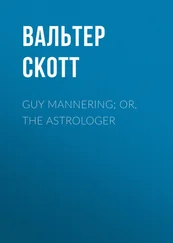Вальтер Скотт - Redgauntlet - A Tale Of The Eighteenth Century
Здесь есть возможность читать онлайн «Вальтер Скотт - Redgauntlet - A Tale Of The Eighteenth Century» — ознакомительный отрывок электронной книги совершенно бесплатно, а после прочтения отрывка купить полную версию. В некоторых случаях можно слушать аудио, скачать через торрент в формате fb2 и присутствует краткое содержание. Жанр: foreign_antique, foreign_prose, Альтернативная история, на английском языке. Описание произведения, (предисловие) а так же отзывы посетителей доступны на портале библиотеки ЛибКат.
- Название:Redgauntlet: A Tale Of The Eighteenth Century
- Автор:
- Жанр:
- Год:неизвестен
- ISBN:нет данных
- Рейтинг книги:4 / 5. Голосов: 1
-
Избранное:Добавить в избранное
- Отзывы:
-
Ваша оценка:
- 80
- 1
- 2
- 3
- 4
- 5
Redgauntlet: A Tale Of The Eighteenth Century: краткое содержание, описание и аннотация
Предлагаем к чтению аннотацию, описание, краткое содержание или предисловие (зависит от того, что написал сам автор книги «Redgauntlet: A Tale Of The Eighteenth Century»). Если вы не нашли необходимую информацию о книге — напишите в комментариях, мы постараемся отыскать её.
Redgauntlet: A Tale Of The Eighteenth Century — читать онлайн ознакомительный отрывок
Ниже представлен текст книги, разбитый по страницам. Система сохранения места последней прочитанной страницы, позволяет с удобством читать онлайн бесплатно книгу «Redgauntlet: A Tale Of The Eighteenth Century», без необходимости каждый раз заново искать на чём Вы остановились. Поставьте закладку, и сможете в любой момент перейти на страницу, на которой закончили чтение.
Интервал:
Закладка:
We had by this time arrived at the remains of an old finger-post, which my host had formerly pointed out as a landmark. Here, a ruinous wooden bridge, supported by long posts resembling crutches, served me to get across the water, while my new friend sought a ford a good way higher up, for the stream was considerably swelled.
As I paused for his rejoining me, I observed an angler at a little distance pouching trout after trout, as fast almost as he could cast his line; and I own, in spite of Joshua’s lecture on humanity, I could not but envy his adroitness and success, so natural is the love of sport to our minds, or so easily are we taught to assimilate success in field-sports with ideas of pleasure, and with the praise due to address and agility. I soon recognized in the successful angler little Benjie, who had been my guide and tutor in that gentle art, as you have learned from my former letters. I called – I whistled – the rascal recognized me, and, starting like a guilty thing, seemed hesitating whether to approach or to run away; and when he determined on the former, it was to assail me with a loud, clamorous, and exaggerated report of the anxiety of all at the Shepherd’s Bush for my personal safety; how my landlady had wept, how Sam and the ostler had not the heart to go to bed, but sat up all night drinking – and how he himself had been up long before daybreak to go in quest of me.
‘And you were switching the water, I suppose,’ said I, ‘to discover my dead body?’
This observation produced a long ‘Na – a – a’ of acknowledged detection; but, with his natural impudence, and confidence in my good nature, he immediately added, ‘that he thought I would like a fresh trout or twa for breakfast, and the water being in such a rare trim for the saumon raun, [The bait made of salmon-roe salted and preserved. In a swollen river, and about the month of October, it is a most deadly bait.] he couldna help taking a cast.’
While we were engaged in this discussion, the honest Quaker returned to the farther end of the wooden bridge to tell me he could not venture to cross the brook in its present state: but would be under the necessity to ride round by the stone bridge, which was a mile and a half higher up than his own house. He was about to give me directions how to proceed without him, and inquire for his sister, when I suggested to him that, if he pleased to trust his horse to little Benjie, the boy might carry him round by the bridge, while we walked the shorter and more pleasant road.
Joshua shook his head, for he was well acquainted with Benjie, who, he said, was the naughtiest varlet in the whole neighbourhood. Nevertheless, rather than part company, he agreed to put the pony under his charge for a short season, with many injunctions that he should not attempt to mount, but lead the pony (even Solomon) by the bridle, under the assurances of sixpence in case of proper demeanour, and penalty that if he transgressed the orders given him, ‘verily he would be scourged.’
Promises cost Benjie nothing, and he showered them out wholesale; till the Quaker at length yielded up the bridle to him, repeating his charges, and enforcing them by holding up his forefinger. On my part, I called to Benjie to leave the fish he had taken at Mount Sharon, making, at the same time, an apologetic countenance to my new friend, not being quite aware whether the compliment would be agreeable to such a condemner of field-sports.
He understood me at once, and reminded me of the practical distinction betwixt catching the animals as an object of cruel and wanton sport, and eating them as lawful and gratifying articles of food, after they were killed. On the latter point he had no scruples; but, on the contrary, assured me that this brook contained the real red trout, so highly esteemed by all connoisseurs, and that, when eaten within an hour of their being caught, they had a peculiar firmness of substance and delicacy of flavour, which rendered them an agreeable addition to a morning meal, especially when earned, like ours, by early rising, and an hour or two’s wholesome exercise.
But to thy alarm be it spoken, Alan, we did not come so far as the frying of our fish without further adventure. So it is only to spare thy patience, and mine own eyes, that I pull up for the present, and send thee the rest of my story in a subsequent letter.
LETTER VII
THE SAME TO THE SAME (In continuation.)
Little Benjie, with the pony, having been sent off on the left side of the brook, the Quaker and I sauntered on, like the cavalry and infantry of the same army occupying the opposite banks of a river, and observing the same line of march. But, while my worthy companion was assuring me of a pleasant greensward walk to his mansion, little Benjie, who had been charged to keep in sight, chose to deviate from the path assigned him, and, turning to the right, led his charge, Solomon, out of our vision.
‘The villain means to mount him!’ cried Joshua, with more vivacity than was consistent with his profession of passive endurance.
I endeavoured to appease his apprehensions, as he pushed on, wiping his brow with vexation, assuring him that, if the boy did mount, he would, for his own sake, ride gently.
‘You do not know him,’ said Joshua, rejecting all consolation; ‘HE do anything gently! – no, he will gallop Solomon – he will misuse the sober patience of the poor animal who has borne me so long! Yes, I was given over to my own devices when I ever let him touch the bridle, for such a little miscreant there never was before him in this country.’
He then proceeded to expatiate on every sort of rustic enormity of which he accused Benjie. He had been suspected of snaring partridges – was detected by Joshua himself in liming singing-birds – stood fully charged with having worried several cats, by aid of a lurcher which attended him, and which was as lean, and ragged, and mischievous, as his master. Finally, Benjie stood accused of having stolen a duck, to hunt it with the said lurcher, which was as dexterous on water as on land. I chimed in with my friend, in order to avoid giving him further irritation, and declared I should be disposed, from my own experience, to give up Benjie as one of Satan’s imps. Joshua Geddes began to censure the phrase as too much exaggerated, and otherwise unbecoming the mouth of a reflecting person; and, just as I was apologizing for it, as being a term of common parlance, we heard certain sounds on the opposite side of the brook, which seemed to indicate that Solomon and Benjie were at issue together. The sandhills behind which Benjie seemed to take his course, had concealed from us, as doubtless he meant they should, his ascent into the forbidden saddle, and, putting Solomon to his mettle, which he was seldom called upon to exert, they had cantered away together in great amity, till they came near to the ford from which the palfrey’s legitimate owner had already turned back.
Here a contest of opinions took place between the horse and his rider. The latter, according to his instructions, attempted to direct Solomon towards the distant bridge of stone; but Solomon opined that the ford was the shortest way to his own stable. The point was sharply contested, and we heard Benjie gee-hupping, tchek-tcheking, and, above all, flogging in great style; while Solomon, who, docile in his general habits, was now stirred beyond his patience, made a great trampling and recalcitration; and it was their joint noise which we heard, without being able to see, though Joshua might too well guess, the cause of it.
Alarmed at these indications, the Quaker began to shout out, ‘Benjie – thou varlet! Solomon – thou fool!’ when the couple presented themselves in full drive, Solomon having now decidedly obtained the better of the conflict, and bringing his unwilling rider in high career down to the ford. Never was there anger changed so fast into humane fear, as that of my good companion. ‘The varlet will be drowned!’ he exclaimed – ‘a widow’s son! – her only son! – and drowned! – let me go’ – And he struggled with me stoutly as I hung upon him, to prevent him from plunging into the ford.
Читать дальшеИнтервал:
Закладка:
Похожие книги на «Redgauntlet: A Tale Of The Eighteenth Century»
Представляем Вашему вниманию похожие книги на «Redgauntlet: A Tale Of The Eighteenth Century» списком для выбора. Мы отобрали схожую по названию и смыслу литературу в надежде предоставить читателям больше вариантов отыскать новые, интересные, ещё непрочитанные произведения.
Обсуждение, отзывы о книге «Redgauntlet: A Tale Of The Eighteenth Century» и просто собственные мнения читателей. Оставьте ваши комментарии, напишите, что Вы думаете о произведении, его смысле или главных героях. Укажите что конкретно понравилось, а что нет, и почему Вы так считаете.












